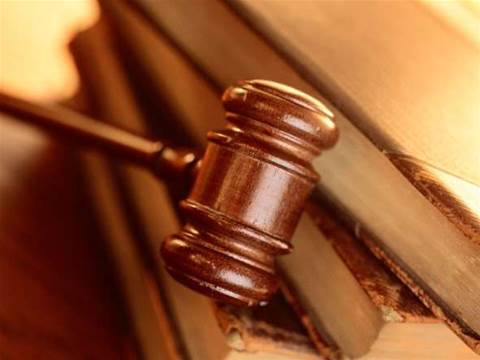The association that represented the interests of internet service providers sought to model itself as a disinterested party advising the Federal Court deciding whether iiNet aided illicit downloads of copyright material as alleged by the film industry.
Court documents obtained by iTnews show that the Internet Industry Association believed it had a "unique perspective" on the litigation because it helped to draft safe harbour laws. The association said it had "special knowledge and expertise" from its experience in writing policy.
The Australian Federation Against Copyright Theft led by Roadshow Fims began the case late last year, alleging iiNet did not do enough to prevent its broadband subscribers from illegally sharing copyright-protected works. The ISP argued that it did not have the legal right to intercept the communications of its subscribers, a law being amended.
At the last directions hearing before Justice Dennis Cowdroy on September 8, Clayton Utz's Steven Finch acting for the ISP group said it would make an application on behalf of its 140 members, which included iiNet, to offer its services as "'friend of the court" (amicus curiae).
Justice Cowdroy said at the last directions hearing that he was not yet sure "what purpose would be served" by the ISP group's application but he did not rule out its involvement.
Its nine-page submission released today and made on September 11 showed it will advise the court towards the end of the Court case. Its justification was that its members were affected by the outcome.
"It is IIA's submission that it is in a position to assist the court in a way which the court would not ... otherwise have been assisted in order to resolve the issues raised by the parties to the proceedings," the IIA wrote in its submission.
The IIA backed its position by writing it was the "peak industry association" representing a "significant number of internet service providers and other businesses that provide services on or to the internet".
And it pointed to its importance in contributing to Government policy and explained that it had "developed a number of industry codes that apply to participants in the internet industry, and has been recognised by the Australian Communications and Media Authority as the 'major internet industry body in Australia' ".
"IIA provides a unique perspective due to its direct role, including that of its CEO, Peter Coroneos, in the formulation of the safe harbour provisions at the time of negotiating the US-Australia Free Trade Agreement in and around 2004," it said.
The association said its safe harbour provisions represented a "vital bargain between content owners and service providers".
"IIA has first-hand knowledge of how this bargain was struck and designed to operate."
It concluded in its reasoning to be accepted that the "IIA is uniquely placed to assist the court in resolving the issues raised by the parties".
"It is submitted that IIA is in position to advance useful submissions in the public interest on the proper construction of certain provisions of the Copyright Act, in particular those provisions dealing with the authorisation liability of carriage service providers," it said.
At the September 8 directions hearing counsel for Roadshow Films raised a concern that "the orderly conduct of the hearing could be impacted if intervention is granted, or if it's not tightly controlled".
Roadshow's counsel said that the IIA was a "representative body of which the respondent, iiNet, is a member".
"It represents the interests of the respondent and other internet service providers and it is in no sense a bystander with an independent position to put in the proceedings," Roadshow said. "We say it doesn't fall within the traditional understanding of an amicus curiae."
The ISP association batted back, saying "it is not a requirement that an amicus or intervener be a neutral, disinterested bystander".
"Indeed, it is submitted that amici or interveners normally have a direct or indirect interest in the outcome of the proceeding or the issues in dispute," the association said.
"Although IIA is not a disinterested bystander, it has unique knowledge and expertise, distinct from the parties, as a result of its position as the peak Australian internet industry association," the IIA said.
The ISP group referred to previous cases where a court granted leave for industry bodies to advise the court.
It said that in Kabushiki Kaisha Sony Computer Entertainment v Stevens (2201) 116 FCR 490 the court granted leave for regulator the Australian Competition and Consumer Commision to advise the court even though the "ACCC plainly wishes to press for a construction of the legislation at odds with that favoured by the Sony companies".
"It is submitted that, given the limited nature of the proposed intervention, there will be no impact on the orderly conduct of the [current] hearing," the IIA said.
"The terms upon which IIA seeks to intervene would not interfere with the ability of the parties to conduct the proceedings as they wish. IIA would not file pleadings, lead evidence or examine witnesses. IIA seek to make submissions only on a limited number of issues. Further, it is estimated that oral submissions would take no more than a few hours at the conclusion if the final hearing.
"It is submitted that, given the limited nature of the proposed intervention, there will be no impact on the orderly conduct of the hearing."
The IIA added that the case was of "major importance and public interest".
"It raises the legal issue of the authorisation liability of ISPs," it said. "In particular, there has been no previous judicial consideration of the meaning of 'repeat infringer' under section 116AH of the Copyright Act and the safe harbour provisions more broadly."








_(27).jpg&h=142&w=230&c=1&s=1)




.jpg&w=100&c=1&s=0)











